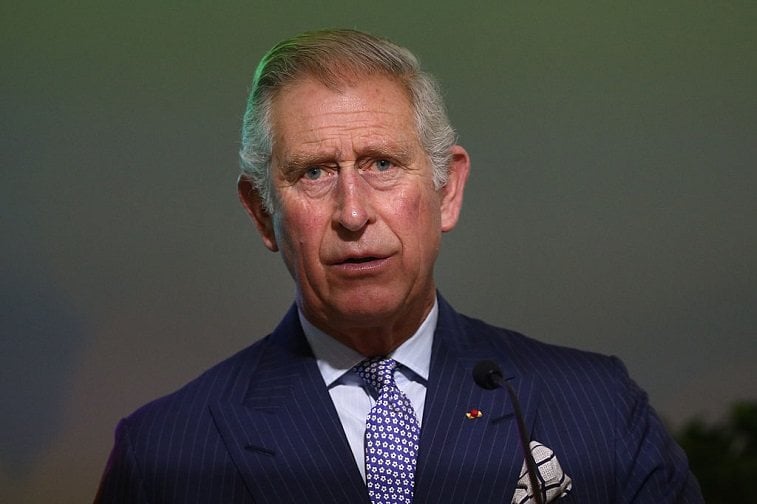Does Prince Charles Have a Last Name? 6 Facts About the Royal Family’s Last Name
Official titles are one of the most important aspects of a royal family member’s life. Which is why its a big deal when the queen gives someone a new status, such as duke or duchess. But, what about the royal family’s last name? It might not be as well known as certain royal titles, but it certainly does exist. That said, some members are more inclined to use it than others. Case in point: Prince Harry and Prince Charles’s last name is the same, but Harry uses his more (or at least he did when he was in the military) than his father does.
Find out more about Prince Charles’s last name, plus facts about the royal family’s last name in general, ahead.

Prince Charles’s last name
Royal fans want to know: What is Prince Charles’s last name? However, the answer is that he doesn’t really have one. Because he is a high-ranking royal with His Royal Highness (HRH) status, the future King of England is — for the most part — on a first-name basis. Therefore, he does not need to use a surname.
That said, he technically comes from the Mountbatten-Windsor family, as Windsor is Queen Elizabeth II’s family name and Mountbatten is Prince Philip’s family name. And, like some couples, when they got married, they merged their two names together to distinguish who’s who in the royal family. In addition, if Charles wished, he could go by Charles Wales, as that is the name of his personal house
The royal family’s last name
Prince Charles’s last name might be optional, but not everyone is as high-ranking as he is. That means those members of royalty that live more normal lives (like Princess Beatrice, who worked at an office in New York City) might see a need to use the royal family’s last name from time to time. Find out more about the royal family’s last name, below.
1. Those with His or Her Royal Highness status do not require a last name
Even though the royal family has a last name, those with a His or Her Royal Highness title do not technically have one. The idea is that these high-ranking royals are known on a first name or royal title-basis, so they do not need a last name. That said, it’s not the end of the world if Prince Charles needs to use his family name.
2. The royal family’s last name didn’t exist before 1917
In 1917, King George V decided he was over the family’s house name (probably because it was so long) and ordered it changed from Saxe-Coburg-Gotha to Windsor. At the same time, he brought the royal family up to speed — and made them more relatable to us commoners — with the times and gave them their first last name. The name was, of course, Windsor to match the house.
3. Descendants of King George V are called Windsor
When the queen’s grandfather changed the family name to Windsor (presumably after Windsor Castle), all of his descendants got a new name. And, even though many of them — like Queen Elizabeth II — are known without the last name, they are still free to use it if need be.
4. The queen chose a different last name for her family
Like her grandfather, Queen Elizabeth II also wanted a special last name to distinguish her and Prince Philip’s bloodline. And, as it turns out, she was way ahead of her time. The queen chose to hyphenate her and Philip’s last names into Mountbatten-Windsor.
Even though most of her family members don’t need to go by the name (for the most part, they have HRH status), it’s a way to separate them on the royal family tree.
5. Sometimes they use their house name
While Mountbatten-Windsor has a royal ring to it, it’s not required for royals to use that last name. In addition to the family name, they may also go by their house name — aka, the name of their peerage. That means Prince Harry could go by Harry Sussex, Prince William could go by William Cambridge, Prince Charles could go by Charles Wales, Prince Andrew could go by Andrew York, and so on.
6. Royals don’t actually need a last name, but it’s nice to have
Even without a His or Her Royal Highness title, royals don’t technically need a last name. After all, we only really know them by their royal titles anyways. However, some royals — including Prince Harry — might use a last name in certain settings. Case in point: Prince Harry allegedly went by Captain Harry Wales (his former house name) for military purposes.
Check out The Cheat Sheet on Facebook!


